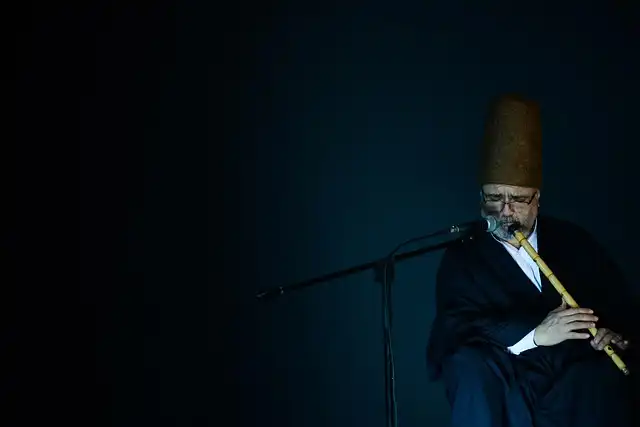Migration, Loss, and Feminist Peace: Raaza Jamshed’s ‘What Kept You?’

Raaza Jamshed's 'What Kept You?' explores migration, loss, and feminist peace through Jahan's journey from Lahore to Sydney. The novel examines identity, displacement, and the search for belonging.
This desire encourages her to migrate to Sydney, and brings about the story’s key events: fulfilling her partner Ali, relocating with each other to reside on a home on Sydney’s western outskirts, enduring a miscarriage, and surviving a bushfire that supplies both critical dramatization and catharsis.
False Security and Borders
Jamshed utilizes Jahan’s childhood years home in Lahore, which is surrounded by wall surfaces, to provide a political commentary on the false safety and security used by borders. As feminist scholars of security have lengthy kept in mind, what keeps a nation protected is not the like what keeps its people safe. Instruments like hard boundaries and wall surfaces create the theatre of safety and order from the point-of-view of the state, yet they do not create true, really felt, specific security.
In the story’s closing scene, Jahan swims in a river with a steed she has remained back to protect from a bushfire. The symbolic meaning is evident: both she and the horse are unbridled.
In an effort to make her frightened of what awaits her outside the family member security of home, Jahan’s female carers inform her stories concerning devils, as well as the extra mundane truth of men’s physical violence against females and bodies showing up on the street.
The genre of migrant autofiction, specifically coming-of-age job, is growing, but Jamshed’s publication stands apart. Although this is her launching novel, her voice is mature. The narration relocates in between the lead character’s young people and her their adult years, but its concerns are squarely grown-up. They are the kinds of worries that grownups around me are continually experiencing– specifically, questions regarding what we owe to generations before and after us, to our (grand)moms and dads and our kids.
The protagonist in Raaza Jamshed’s unique What Kept You? matures in Lahore, Pakistan, under her grandma’s watchful eye, in a residence that sits in the shadow of the city’s walls. The memory of the chaos and human suffering that arised from India’s Dividing in 1947 swirls around Jahan’s childhood.
Female Friendship and Solidarity
Jahan’s recollections of her connections with two women personalities, Aisha and Choti, lug substantial weight in the middle sections of the book. Both partnerships are shaped by events that circle around male characters, they supply an unforgettable expedition of female friendship and the opportunities for solidarity among ladies, especially across distinctions.
Both of these threads, the mythic and the ordinary, are means of storying the pall of fear cast by violence and its memory. A refrain repeated throughout the novel– that “these are not our tales”– hints that Jahan is searching for an alternate story for herself.
In general, the story is notably and self-consciously thinking about and severe about making use of language, which is appropriate given that Jamshed is a multilingual writer thinking about the politics of language. The tongues Jahan browses– English, Urdu, Punjabi and Arabic– generate slippages and incomplete definitions, and often enhance minutes of estrangement that prevail in diasporic writing.
Language, Estrangement, and Diaspora
Eda Gunaydin does not help, speak with, own shares in or receive funding from any kind of company or company that would benefit from this article, and has actually divulged no appropriate affiliations beyond their academic visit.
Jamshed solutions this phone call, giving a feminist account of tranquility via the tool of literature. She achieves this by focusing on the local and the affective: her writing sits with the regular everyday life of people, women and women. Jahan, like various other female characters in What Kept You?
Feminist Account of Peace
The story’s discussions of home and separation are refreshing because Jahan is a woman that occupies the role of the hero, travelling out into the globe in search of liberty. Her departure from Lahore is a recognizing effort not just to cast off the constraining expectations of her grandmother and mother, but the suffocation of their stories.
In one scene, Jahan kisses a male personality, whom she calls Some Child. Some Young boy is decentered and discolors away, yet the broken heart Jahan experiences at the hands of Aisha sticks around.
Feminist peace scholars suggest this too: types of violence, such as gendered violence, linger long after the final tranquility agreement is signed. They suggest that an extra detailed check out peace would additionally think about day-to-day experiences, especially the experiences of marginalised teams, in order to fully realize what peace is.
What Kept You? is full of enthusiastic sentences. Where the author’s experiments pay off, the writing is lyrical and welcomes the reader in, creating the affection that Jamshed is likely seeking, though not every experiment prospers. Some turns of phrase create range and opacity, or just clumsiness and disturbance. Sentences like “his eyes gazed in my direction” or “I hear my mouth utter” read as disembodied, while expressions like “She had a fish face, a fish to be specific”, and “This was Ali; Ali was the stranger’s name” feel forced and searching.
Losses and Feminist Task
In embracing a quasi-epistolary style and eschewing a linear style, Jamshed continues to execute her feminist task. The 2 losses– Jahan’s miscarriage and the passing of her grandmother– generate the book’s enthusiastic framework.
Jamshed uses Jahan’s childhood home in Lahore, which is bordered by wall surfaces, to supply a political discourse on the incorrect security supplied by borders. In the book’s closing scene, Jahan swims in a river with an equine she has stayed back to shield from a bushfire. Jahan, having left Lahore under controversial situations, has a strained connection with her granny. With few instructions to channel her unhappiness over her granny, and after her losing the unborn baby in Sydney, Jahan obtains the advice to compose a letter to seek closure.
The two losses– Jahan’s losing the unborn baby and the death of her granny– generate the novel’s ambitious framework.
For a character whose feeling of self– her tale of who she is as an individual– stems partially from matrilineal relationships, this break unmoors her. The unique deals a complex account of gendered grief, as well as uncertain grief. With couple of instructions to channel her sadness over her grandmother, and after her miscarriage in Sydney, Jahan receives the suggestions to compose a letter to seek closure.
That several of the prose reviews as overstated is to be anticipated, given Jamshed’s aspiration to create job that is mythic and sweeping, including in its implementation of language, and her objectives to manage it with reverence. Jamshed approaches language as ballast– heavy, weighty with background, and significant. In so doing, she frequently succeeds at letting fly something that lands with an epic bang.
Jamshed is herself a migrant author that, like her protagonist, is from Pakistan, with Muslim forefathers who migrated from Kashmir. She and her partner, like Jahan and Ali, have different backgrounds, with the commonness that they are both Muslim. And like Jahan and Ali, she and her partner have relocated to the semi-rural edges of the city.
Jamshed’s Migration Experience
Running alongside these triumphant and liberating moments are sombre reflections on the consequences of being a “woman who has actually left home”. Jahan, having left Lahore under contentious circumstances, has a strained relationship with her granny. When her grandma passes, she does not return to Pakistan.
What Kept You? Makes enough use of the often unpopular second-person– a method that permits the storyteller to comment on her younger self at the exact same time as she stays within the story’s activity. These moments of activity, which are told in the first-person and attribute straight dialogue, attain dramatic tension.
Consequences of Leaving Home
1 cultural identity2 feminist peace
3 gendered violence
4 grief and loss
5 migrant autofiction
6 Pakistani literature
« China’s Engineering vs. America’s Lawyerly Society: A ComparisonEmma Willis: Caregiving, Marriage, and Bruce’s Health Journey »
